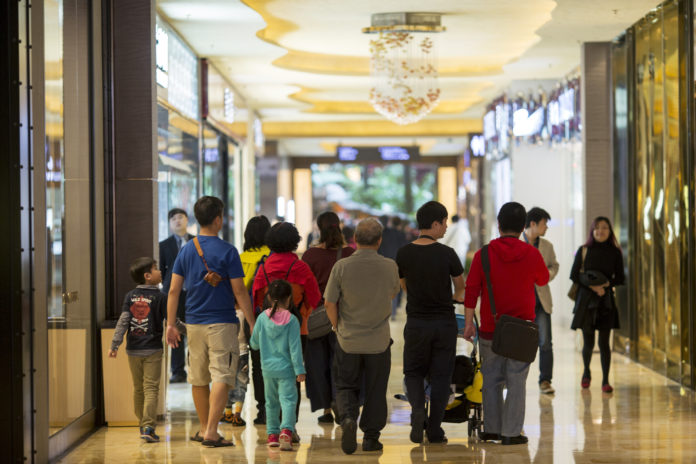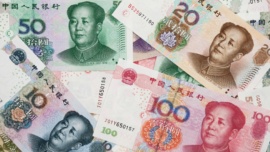“The average Chinese gaming consumer is 36 years old, is more likely to be male, very likely lives in a Tier 1 or Tier 2 city, earns RMB19,000 per month, and has visited Macau three times in the past 12 months, with a gaming budget of at least RMB20,000,” states a recent Bernstein report.
This document is another contribution to trying to clarify one of the great mysteries of Macau – that is, the main motivation of the Chinese tourist visiting the MSAR – helping build a profile which still does not exist today.
So the main motivation is not gambling, asks the Macau Business reader (who probably is reading us in one of the 5-star hotels of Macau and has or will visit the gaming halls)?
“Although the gaming industry contributes the biggest part of Macau’s GDP it doesn’t necessarily mean that it is the activity that most tourists visit Macau for,” says Leonardo (Don) Dioko, Director of IFT’s Tourism Research Centre.
“To identify the key draws of Macau, we asked respondents to specify their top three must-do activities in Macau. Eating in restaurants, sightseeing and shopping were the most attractive activities to do in Macau; while gaming is the key draw for Macau visitors, it is not surprising that this activity ranked only fourth in the survey,” according to former research from Bernstein.
“Although Macau has become known worldwide as the ‘Monte Carlo of the Orient’ our results show that the major segment of Macau visitors [go] shopping instead of gambling. The visitor segment for gambling takes the leading position in terms of expenditure levels, not expenditure preference,” we can read in Exploring the Expenditure-based Profile of Macau Visitors research paper.
This is why one of Macau’s most prolific researchers in tourism, Ip Kin Anthony Wong, has called his study Beyond Hardcore Gambling: understanding why Mainland Chinese visit casinos in Macau: “This study demonstrates that the reason why Mainland Chinese tourists flock to casinos in Macau goes beyond hardcore gambling.”
“Eating in restaurants, sightseeing and shopping were the most attractive activities to do in Macau; while gaming is the key draw for Macau visitors, it is not surprising that this activity ranked only fourth in the survey” – Bernstein report.
 City University of Macau professor Ip Kin Anthony Wong concludes: “Macau receives a large number of travellers from Mainland China who travel to enjoy the cultural elements, scenery, and shopping environment and not just to gamble.”
City University of Macau professor Ip Kin Anthony Wong concludes: “Macau receives a large number of travellers from Mainland China who travel to enjoy the cultural elements, scenery, and shopping environment and not just to gamble.”
[It is known that gaming is the key draw for Macau visitors, but how to understand that this activity is ranked, for instance, only fourth in the Bernstein survey? “We find that [respondents] tend to minimise the importance of gaming in their answers, which we do not believe reflects the reality of Macau.”]
The truth is that there is no comprehensive assessment of the profile of the Chinese gambler in Macau, his/her characteristics, motives and preferences.
Let us return, therefore, to the most recent study by Bernstein: analysts found that 42 per cent of Chinese customers, on their most recent visit to the MSAR, “stayed at or gamed for a majority of their time at a Sands property . . . The most important factor in choosing which property in the MSAR to reside and gamble in is ‘functionality’: the quality of the casino and that of its hotel rooms and non-gaming offerings” are two other findings.
Benefits from Hong Kong?
I Will Never Go to Hong Kong Again! is the title of a research paper by two researchers from Sun Yat-sen University, in Guangzhou, published last year, analysing how the 2014 Occupy Central movement was treated by the Weibo social network.
“More and more negative emotions towards Hong Kong were displayed, along with the intentional behaviour of a tourism boycott. These showed a strong reluctance to travel to Hong Kong, with, for example, one suggesting ‘Only those who have nothing to do will go to Hong Kong’,” they wrote.
Luo and Zhai Professors also state: “Weibo users displayed strong feelings of antipathy towards the Hong Kong Government’s behaviour of emphasising tourism promotion in Mainland China, and meanwhile continued to express the opinion of boycotting travel to Hong Kong through strong confrontational emotions towards Hong Kong people.”
Since Hong Kong is the main foreign destination of Chinese tourists, however, the article in question did not leave the academic community indifferent.
Earlier this year came the “rejoinder to Luo & Zhai”, signed by Denis Tolkach of the School of Hotel and Tourism Management, The Hong Kong Polytechnic University.
“It is surprising to read some unsupported claims regarding the impact of Occupy Central on tourism in Hong Kong,” wrote Professor Tolkach, to whom “this rejoinder raises concerns regarding analysis of social media platforms based in China due to strict censorship of the Internet in China. Censorship makes it impossible to analyse what people [really] think. The only subject that can be studied is what people are allowed to publicly express.”
























